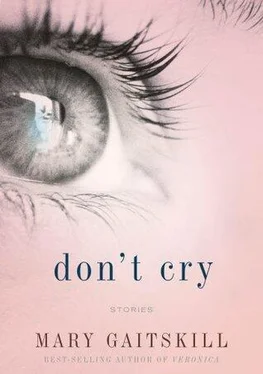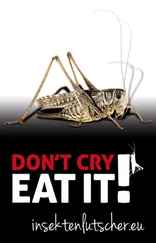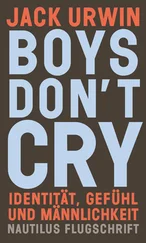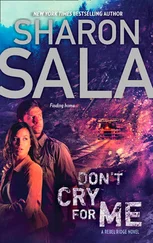And of course the imaginary jury was right. I would love Kira no matter how many boys she did what with, or girls, for that matter. Things are not like they once were. Sex and the City is on TV Still, when I think of her as she will be — dripping with hormones and feelings, nursing the secret hurt of a seed about to burst into flower — it makes me uneasy. To think of her opening her warm spring darkness to any lout who wants it makes me feel sadness, followed by a surprising surge of anger (anger that includes an even more surprising burst of sympathy for my mother's anger, sympathy even for the time she slapped my face after she caught me and Donald Parker doing it in the rec room). But even as I feel the anger, even with my mother's anger crowding behind it — my mother, also single, now a mild alcoholic in old age, calling me to give me a piece of her mind about the latest nonsense on the news — even as I feel the anger, love rises up to enclose it. Inside love, anger still secretly burns — but it is a tiny flame. I can hold it like I once held my daughter in my body, a world within a world.
But just now I allowed myself to enter the little flame and feel it all the way. I did it in the spirit of the feminist author — and to show her up, too. So, she can be the innocent girl and the prostitute and the author, eh? Well, imagine a full deck of cards, each card painted with symbols of woman — the waif, the harlot, the mother, the warrior, the queen — until the last card, on which we see Medea, a knife in her raised, implacable hand. Yes, there I am and there any woman can be, even though we don't stand up on stages and make a fuss about it. And we can skip lightly back through the deck, carelessly touching each card as we do, before returning to the card of the good mother, or the lover, or, in my case at this moment, the stolid female worker in my brown skirt and flat shoes. Every woman knows all about everything on those cards, even if her knowledge is wordless and half-conscious. It is wordless knowledge because it is too big for words. Sometimes, it is too big for us. Stand up onstage and put words on it and you make it small — and then you say it's sexist when people don't like it.
Except that, if I am going to be honest, I have to admit something that weighs in on the side of the feminist author just slightly. The anger and upset that I let myself feel, that mere hot pinprick in the ardent wetness of love — when you let yourself feel it, when I let myself feel it, it is, was, very strong. Strong and primitive. Enter in through that tiny spot of fire and come out in a hell of shape-shifting and destruction. In that hell lives a beast that will devour anything in front of it, and that beast is especially partial to woman. Why not split her open all the way, just for the pure animal joy of rending and tearing? For a woman even to skirt this place is dangerous because she has the open part. She needs rules, structures, intact shapes to make sure the openness doesn't get too open. For a man, it is different — he can align his strength with the monster and tear the prey with its teeth. For a second, he can walk triumphant in a place of no place. Then he can say the woman lured him there.
That is why the grandfather in the Somali author's book wants to fuck the slut. He tells his son that because she has no children, he feels sorry for her, that he is fucking her out of sympathy. But he does not seem to feel sorry for her. He wants her; you could even say he needs her, for through her he can descend into a terrible, thrilling world and then come back in his suit and tie and be good. The Somali author almost acknowledges this in his frank fascination with the slut. For if she were not there, how could he go to that place of no place? He would have to discharge his anger and contempt on Mom with Double Boobs, and this would be more than anybody could bear — for, like me, he has more love than anger. How unfair that men get to go to this mysterious place and come back whole. How noble that the feminist author stands up onstage and tries to speak for the sluts they go there with, even if she fails. Even if her story makes something terrible into something light and silly, even if she herself is light and silly.
This is what I was thinking as I sat in the hospitality lounge, nursing a seltzer water with lemon, after attending a reading by a man from the prairies who had written a prizewinning novel about a heroic woman who rescues an orphan from an abusive foster parent. I was sitting by the window, and, in the sunlight, the room seemed composed of impossible purple and mahogany hues. Caterers discreetly moved in and out, replacing platters of food and trays of drinks.
Soon I would leave, pick up my daughter, and take her for pizza. We would go home and watch Buffy the Vampire Slayer. And then maybe that strange anime show, the one we stumbled on last week — a show where the heroine, the good girl, has no arms and the sexy villainess is powerful and crude. It looked like the cartoon slut was trying to kill the heroine and steal her boyfriend. But instead, in the middle of a gun battle between hero and villain, the slut (admiring the armless girl's purity) took a bullet to save her and died with the heroine in her arms. When the embrace broke, the good girl magically stood up with arms of her own and proceeded to beat the crap out of the bad guy. “Yeah, there's gonna be some changes around here!” she announced. Rock music played.
“Weird,” said Kira, and, yes, it was.
I drank my seltzer water and reviewed my notes.
Early in my career, I did a piece on the then-burgeoning phenomenon of TV talk shows, focusing on a particular show, a show that at the time had made its reputation by sympathetically telling the stories of victims, stories that had once been too shameful to tell. Rape was a mainstay of the show, and I was present on the set for an episode that featured two women who had been raped by coworkers in the workplace, one of whom had succeeded in pressing charges, while the other had lost her case. The successful woman was a flamboyant redheaded beauty who came on yelling, “I just want to say I've got a shotgun ready for any sumbitch who tries it again!”
But first came the defeated one, a chubby middle-aged woman who tried to hide her identity by sitting with her back to the camera and wearing an ill-fitting wig. The man she'd accused of raping her was there, too, and he had a lot to say “She go like this,” he said, “on the desk!” He stood up and bent over, putting his hands out as if bracing himself. “And I say, ‘No! I don't want that!’ “
The awful thing was, you could totally picture her bent over the desk. Even viewing her from the back, we could see her bending nature — the mild, gentle slope of her shoulders, the sweetness of her excess flesh, the way she turned in her chair to yell, “No! That's not the truth!” Her anger was like a clumsy animal, and you could hear in it the soft puzzlement of a person who does not understand cruelty.
“You are an alcoholic!” yelled the accused rapist. “Everybody knows!”
“I offered you one drink!” she cried. “I thought you were lonely!”
“You are a whore! You give VD!”
“No!” cried the woman. “No!” And then she just wept.
A stout little woman came on to talk about rape. She planted her feet, set her small barrel body in a “no bull” stance, and gave it to us straight: Rape was bad, and she was prepared to duke it out with anyone who said it wasn't.
“I agree!” screamed the accused rapist. “I agree!”
The wigged woman continued to weep. Nobody looked at her. In swept the triumphant redhead, who bellowed about her rights. “And I just hope the rapists who are watching the show right now understand that we aren't going to take it anymore!” she cried. The audience cheered. The wig woman wept. The talk-show hostess strode about the set, blond and bristling with savoir faire. She had featured progress, but she had not forgotten the agonized face. Unlike the feminist author, she had put it right up there on the screen.
Читать дальше












